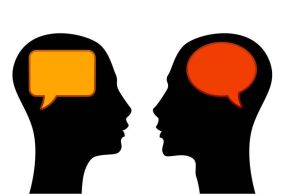Wikipedia, Communication, lorem ipsum, and the Political Spectrum
As some of you may know, in addition to my political commentary, I am also an aspiring novelist. The novel I’m currently working on requires a rather extensive working knowledge of people and events in history. I don’t need expert information, but rather a broad familiarization with each person or event that might impact my story. Wikipedia, while certainly inadequate for any task requiring serious academic research, fits my needs exactly.
And that’s how I came to find myself looking at Wikipedia’s page on Nazism. I had actually started from the Holy Roman Empire because part of that history intersects with the history I am writing about. But my attention-deficit disorder kicked in, and I just started clicking links. Has that ever happened to you? Well, it happened to me. So, at the bottom of the Wikipedia page for the Holy Roman Empire, I see: Holy Roman Empire (First Reich) German Empire (Second Reich) Nazi Germany (Third Reich) Hypothetical Fourth Reich.
Wait, WHAT? Hypothetical Fourth Reich?! What in the world is that? Obviously, the only way to find out is to click the link, so I click.
Turns out, it’s not as interesting as I thought. Just some raving neo-Nazi lorem ipsum about a hypothetical future where neo-Nazis rule a pan-Aryan Germany restored to its 1937 borders. Raving, indeed. But as I glanced through the short Wikipedia entry, my eye caught the term ‘far-right’, and I grimaced. Far right? Neo-nazism is just unbridled racism without any coherent political ideology attached to it at all. But Nazism, i.e. National Socialism, is a fully-fledged political ideology, albeit a repugnant one. So, I shrugged off the inconsistency and looked up the page on Nazism.
And there it was again. Nazism defined as a far-right political ideology. This made no sense to me. My political ideology is definitely way to the right of center. Nazism, though, couldn’t be more distanced from anything I believe. So how in the world, I thought to myself, did Nazism ever become associated with the political Right? Well, ‘far-right’ was linked to, so I clicked on it.
Here’s an excerpt from the Wikipedia page on ‘far-right’ politics:
Far right politics involves support of strong or complete social hierarchy in society, and supports supremacy of certain individuals or groups deemed to be innately superior who are to be more valued than those deemed to be innately inferior.
It goes further:
Far right politics commonly includes authoritarianism, nativism and racialism. The far right claims that superior people should proportionally have greater rights than inferior people. The far right has historically favored an elitist society based on belief of the legitimacy of the rule of a supposed superior minority over the inferior masses.
My jaw hit the floor.
I sat in stunned silence as I grappled with the incompatible definitions. My understanding of the political spectrum, along with those of everyone else I associate with politically, is entirely different. I have no idea what political characteristic this political spectrum is supposed to be a graph of, but the political spectrum I’m familiar with is a graph of government control, with absolute control (Totalitarianism) on the Left and zero control (Anarchy) on the Right.
And then a light bulb went on over my head.
No wonder the Left misunderstands us when we say we are “right-of-center” or “right-wing”! They’re using an entirely different spectrum!
When those on the Left hear us on the Right say that as ‘center-right’ or ‘right-wing’ we favor limited government and individual liberty, they automatically substitute “authoritarian, racist, etc.” for anything associated with the political Right. They might as well hear: ‘As a racist authoritarian, I favor limited government and individual liberty’.
No wonder they think we’re crazy. Or just plain stupid.
It’s because we’re not dealing with the same definitions for the same words. As anyone who has taken even a high school-level course in Communications can tell you, you need three things for effective communication: a speaker, a listener, and a common language.
If people on the political Left and the political Right are going to have any meaningful dialogue (and boy do we need to), we need to agree at the outset on definitions. Then, once we’re all certain we’re dealing with a common glossary, we need to be able to articulate our own position to the other well-enough for them to be able to repeat it back to us in their own words to our satisfaction, and vice-versa. Only then, with common definitions and a mutual understanding of each other’s positions can we even begin to have meaningful dialogue.
I would bet money that once we do that, we’ll find that we aren’t so far apart after all.
Posted on August 30, 2012, in Commentary. Bookmark the permalink. Leave a comment.




Leave a comment
Comments 0